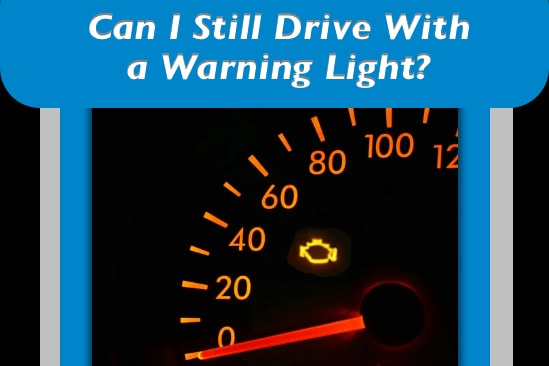
If you’ve had a warning light appear on your dash, we always advise consulting your vehicle’s manual for specific information and guidance, but for some quick reference, let’s go through the most common warnings – what you may be encountering – and what they could mean.
Common Warning Lights and Their Meanings
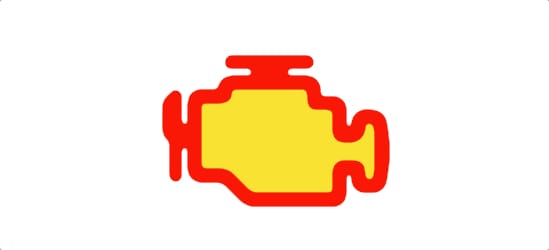
Check Engine Light: This is one of the most common warning lights, as it covers such a wide variety of potential issues from minor to serious. That being said, since it can be such a mixed bag, it's best to have your vehicle inspected by a mechanic to determine the exact cause as soon as possible. The initial diagnosis can be done quickly, as a tech will attach a scanner to your vehicle to find out, at least, what the vehicle itself thinks is wrong. This initial step will help narrow down what needs inspecting, though further diagnostic tests are likely to follow depending on the complexity in identifying the true root cause.
- Best-case scenario: A minor issue like a loose gas cap.
- Worst-case scenario: A serious problem like a misfire or catalytic converter failure.
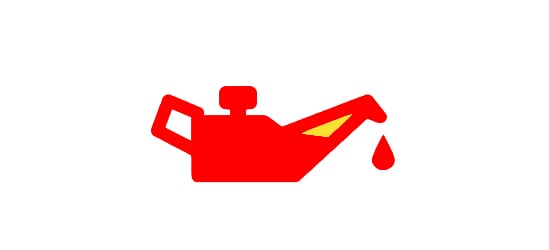
Oil Pressure Light: If this light comes on, it means your engine isn't receiving enough oil pressure, so this is one that needs immediate attention, as this can quickly lead to serious engine damage. Pull over to a safe location and shut off your engine immediately.
- Best-case scenario: A sensor malfunction.
- Worst-case scenario: Insufficient oil pressure, due to low oil levels: if this is the case you’ll need to find from where the oil is escaping. It could be easily identifiable externally, something as simple as a leaky oil pan seal, or an internal seal where it could be mixing with your coolant.
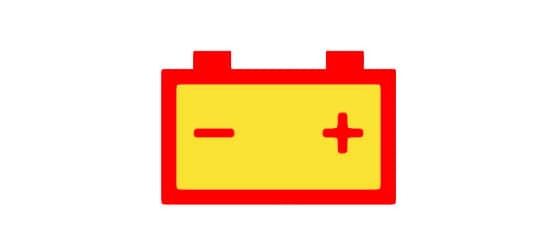
Battery Light: This light indicates a problem with your car's charging system, or simply a battery that can no longer hold a charge - both of which can quickly cause problems. While you might be able to drive for a short distance, it's best to have your battery and system checked as soon as possible. Even though you may already underway, eventually, your vehicle’s lack of electricity will cause the engine to stall, as well as the disabling of its electronics, which include safety features.
- Best-case scenario: A loose battery terminal or flat battery.
- Worst-case scenario: A wiring issue or bad alternator.
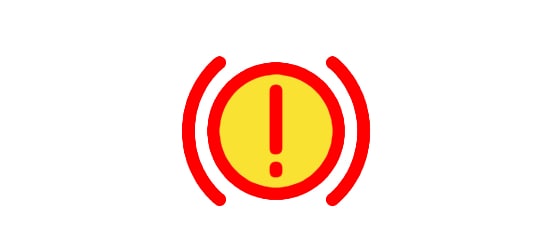
Brake Warning Light: This light could mean low brake fluid levels, a problem with your parking brake, or a malfunction in your braking system. It's crucial to address this issue promptly for your safety.
- Best-case scenario: Low brake fluid or a stuck parking brake.
- Worst-case scenario: A problem with your braking system, such as worn brake pads or a faulty caliper.
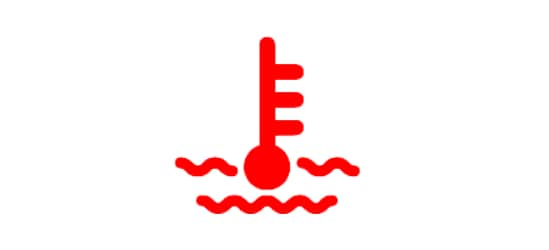
Temperature Warning Light: If this light comes on, it means your engine is overheating. Pull over to a safe location and let your engine cool. This is one you don't want to push, as the heat threatens all the major components of your engine.
- Best-case scenario: A sensor malfunction or a thermostat issue.
- Worst-case scenario: A replacement engine.
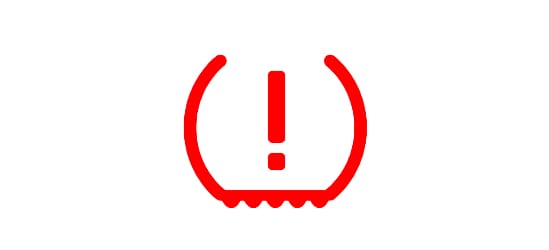
Tire Pressure Monitoring System (TPMS) Light: This light indicates low tire pressure in one or more of your tires. Driving on underinflated tires can lead to premature wear and an imbalance can create handling issues in extreme cases, such as aggressive driving or poor weather and street conditions. This light may be the most seen as well as the most ignored, but considering your tires are your only connection to the road, we can’t stress enough how important their maintenance is.
- Best-case scenario: Low tire pressure or a TPS malfunction.
- Worst-case scenario: A flat tire.
When to Seek Professional Help
If you're unsure about the meaning of a warning light or if the problem persists, it's always best to consult a professional mechanic. They can diagnose the issue and provide the necessary repairs to keep you safe, plus, addressing an issue early likely nearly always saves you from a larger repair bill later. Unfortunately, our cars are in a constant state of wear, so even if a light goes away, it doesn’t necessarily mean the problem went away.
Though we didn’t cover every light here, they all have their purpose, so don't delay when one pops up on your dashboard, as it can save you money as well as keep you safely on the road.